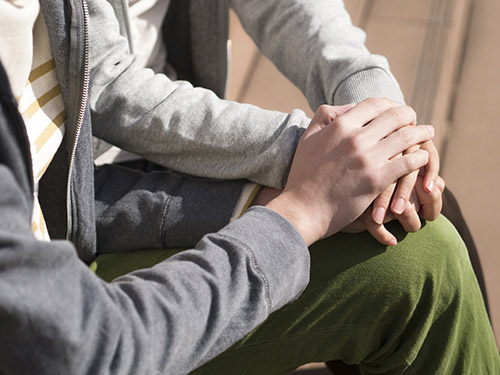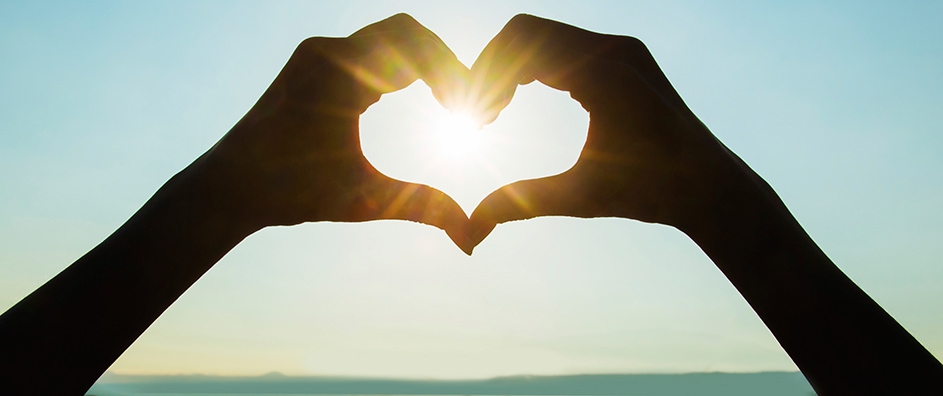The views expressed in our content reflect individual perspectives and do not represent the authoritative views of the Baha'i Faith.
The Baha’i Faith encourages, welcomes and honors the basic human urge to ask questions.
In fact, one of the months in the Baha’i calendar is even named Questions (Masa’il, in Farsi). The Baha’i teachings start by urging everyone to undertake their own independent investigation of truth – to ask the questions and seek the answers a spiritual search always raises. In some religious traditions questions are discouraged – but not in the Baha’i Faith, which actively encourages all questions.
This series is devoted to answering a set of questions that came to us from students of a college comparative religion class. They’re questions that I’m often asked, so they seemed worthy of answering here in the event that others of our readers have wondered the same things.
Question: The Baha’i religion believes that everyone is equal, no matter what ethnicity or gender, but what about sexual orientation?
According to the teachings of Baha’u’llah, we have one duty toward each other — that is to love. This love, the Baha’i scriptures repeatedly remind us, must be universal because God’s love is universal:
“…the oneness of the world of humanity shall be realized, accepted and established. When we reflect upon this blessed principle, it will become evident and manifest that it is the healing remedy for all human conditions. All mankind are the servants of the glorious God, our Creator. He has created all. Assuredly He must have loved them equally; otherwise, He would not have created them. He protects all. Assuredly He loves His creatures; otherwise, He would not protect them. He provides for all, proving His love for all without distinction or preference. He manifests His perfect goodness and loving-kindness toward all. He does not punish us for our sins and shortcomings, and we are all immersed in the ocean of His infinite mercy. Inasmuch as God is clement and loving to His children, lenient and merciful toward our shortcomings, why should we be unkind and unforgiving toward each other? As He loves humanity without distinction or preference, why should we not love all? Can we conceive of a plan and policy superior to the divine purpose? Manifestly, we cannot. Therefore, we must strive to do the will of the glorious Lord and emulate His policy of loving all mankind.” — Abdu’l-Baha, from a talk at St. James Methodist Church in Montreal, 1912, Promulgation of Universal Peace, p. 315.
 Like Christ, Baha’u’llah and Abdu’l-Baha really leave us no “wiggle room”. We are to love everyone and not make exceptions. This even extends to differences in what Abdu’l-Baha calls “shades of thought”:
Like Christ, Baha’u’llah and Abdu’l-Baha really leave us no “wiggle room”. We are to love everyone and not make exceptions. This even extends to differences in what Abdu’l-Baha calls “shades of thought”:
Do not allow difference of opinion, or diversity of thought to separate you from your fellow-men, or to be the cause of dispute, hatred and strife in your hearts. Rather, search diligently for the truth and make all men your friends. — Paris Talks, p. 53.
In another talk during the same period of time, he adds:
When you love a member of your family or a compatriot, let it be with a ray of the Infinite Love! Let it be in God, and for God! Wherever you find the attributes of God love that person, whether he be of your family or of another. Shed the light of a boundless love on every human being whom you meet, whether of your country, your race, your political party, or of any other nation, colour or shade of political opinion. — Paris Talks, p. 38.
While Abdu’l-Baha specifically mentions ethnicity and politics (because these were the chief issues of the time) his words clearly apply universally. “Every human being whom you meet” comes with no “except these”. So, there are no differences recognized by God. Such things as race, gender, sexual orientation, and other realities of human existence are physical/material differences. The soul has no gender, skin color, ethnicity language, or sexual orientation; and Baha’is try to love every soul.
You May Also Like
Comments

















It’s a tough subject to tackle, because perhaps more so than ...anything else we might struggle with in this life, the standards that religion call us to regarding sexuality run sharply counter to what our natural urges or inclinations might be. Emotionally, we’re practically hard-wired to crave the companionship of an intimate partner. Physically, most of us have a robust sex drive that really doesn’t lend itself to monogamy, much less chastity and lifelong marital fidelity. Homo Sapiens is one of the few species on Earth that can have sex purely for pleasure, which complicates things even further.
And yet, our religion, like others, calls us to chastity outside of marriage and fidelity within it. Furthermore, I would invite everyone to consider a particular teaching of Jesus Christ, which I think carries over to the Baha’i Faith. That being: His teaching that to look upon another with lust is to effectively commit adultery in one’s heart. Therefore, it would seem that the standard is not merely physical; it calls for chastity and fidelity of the eye and mind as well. Set against our natural inclinations, and the wildly over-sexed society we live in, that might seem like an impossible challenge to overcome.
Still, I think that’s still what expected of us, and we can’t allow zeitgeist to cloud our thinking. However, the sheer magnitude of the struggle should be enough to remind us that being judgmental on a person-to-person basis is pointless. Because if all it takes to stray from the standard is a wayward glance or fleeting thought, then I think it’s safe to say we’re all stumbling clumsily along this path.
This aspect of the Baha'i teachings does not mean that Baha'is are to discriminate or to disassociate themselves from people based on sexual orientation (or on any other criteria, for that matter). It does not mean that gays cannot become Baha'is. It means that if any person becomes a Baha'i, that they have also done their research and that they accept the Baha'i Faith as the word of God. As such, they are expected to abide by the laws of our faith. That goes for all the laws, which also include honest work, the avoidance of gossip, respect for one's family, etc. -- and to do the very best they can at living by those laws. If there are laws they don't agree with, it becomes their responsibility to abide by them anyway, to study, to pray, and to try to understand -- but this is not a pick and choose buffet of options. You don't get to follow the laws you like and ignore the laws you don't like.
It is also important to remember that the Baha'i Faith is not pointing fingers and saying that the rest of the world has to live by our laws. A sincere Baha'i person will treat everyone, Baha'i or not, with fairness, kindness, and brotherly love regardless of the many factors which sometimes create walls -- race, ethnicity, gender, sexual orientation, economic status, intelligence, education, age, or whether they prefer cats or dogs. These are complex issues, and at times very emotional ones. Let's all proceed slowly and kindly as we explore them with respect.
Backbiting is not just easy to fall into, though, it's also considered positive in some segments of our society where it is called "gossip" or "venting".
Think of that—how easy it is to judge ...and backbite, yet how serious compared to any other sin. Yet we so rarely see dire warnings about the wages thereof. God's priorities are not always our own and vice versa. Consider the Biblical story of Sodom and Gomorrah. Most people I talk to cite sexual perversion as the reason for the destruction of those cities (leaving aside whether that destruction was material or symbolic). But the Bible actually gives a completely different reason. According to Ezekiel 16: 48-50
“As I live,” says the Lord God, “neither your sister Sodom nor her daughters have done as you and your daughters have done. Look, this was the iniquity of your sister Sodom: She and her daughter had pride, fullness of food, and abundance of idleness; neither did she strengthen the hand of the poor and needy. And they were haughty and committed abomination before Me; therefore I took them away as I saw fit."
Which reminds me of something Muhammad revealed at the very end of the Qur'an: Hast thou observed him who belieth religion? That is he who repelleth the orphan, and urgeth not the feeding of the needy. Ah, woe unto worshippers who are heedless of their prayer; who would be seen (at worship) yet refuse small kindnesses! — Qur’an, Surih 107:1-7
The student didn't ask whether homosexual behavior was permissible to Bahá'ís, she asked how Bahá'ís ...view people of different sexual orientations. Her concern was how people who were gay were to be treated. That was the question I answered and I felt a legalistic response was inappropriate.
I am glad to have known him, and to have learned from his example that homosexuality is not mutually exclusive with goodness and love of God.
The answer is, we are to love them. There's a wonderful Buddhist parable that says that if two people are plowing a field and one looks over to see how his neighbor's row is doing, his row will become crooked.
You make a wonderful point about ...internal validation that I think many of us miss. The laws of the Faith are to be written on our hearts. If we are successful, then, we are striving to meet a standard that is within us (much like the kingdom of God) and not something that is imposed from without.